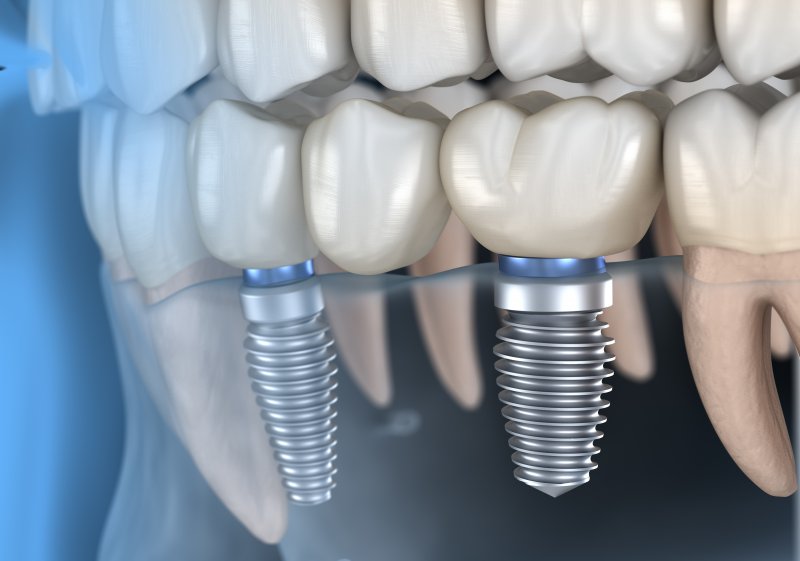
One of the greatest benefits of dental implants in Medford is that they have an extremely high success rate when it comes to placement (95-98%). In fact, it’s one of the many reasons people choose to have them placed in the first place. Unfortunately, there are instances, although rare, where a dental implant can fail. While the reasons for failure are many, it’s important to remember that should this happen to you, there are solutions that can fix this type of problem. Read on to find out what exactly causes dental implants to fail and what your dentist can do to save your smile.
Why Do Dental Implants Fail?
In most situations, patients can receive dental implants and experience no problems with them whatsoever. However, in the unlikely event that a failed dental implant in Medford does occur, and your implant is no longer fitting as it should, the reason could be that it is failing.
Here are a few explanations as to why this happens:
- Improper Placement: One of the first rules to receiving dental implants is to make sure you are having a skilled and highly-trained professional placing them. Improper placement can cause the implant to not fuse with the bone and become unstable. As a result, it can become loose or even fall out. Poor placement can also result in an imbalanced bite that causes discomfort and excessive wear and tear on your natural teeth.
- Poor Immune System: If you smoke, use tobacco products, or have a compromised immune system and received dental implants, it is likely that they did not fuse correctly during the healing process. As a result, your implant will be loose, leading to failure.
- Bone Loss: Depending on the status of your jawbone when you had your implants placed if it was not strong enough at the start, it will negatively impact the success of your implant placement.
- Infection (Peri-Implantitis): This can occur when gum disease is present. Should infection spread beneath the gum line, your implant can be impacted as well as your natural, healthy teeth.
What Can Your Dentist Do to Fix the Problem?
Depending on your individual problem and how it initially occurred (how your implant failed), your dentist in Medford may need to remove the implant in its entirety and allow your gums and bone to health before replacing it. Your dentist will reevaluate your bone and determine if it is strong enough to withstand another implant. If so, a new one will be put into place. If not, a bone graft may be necessary before undergoing dental implant placement again.
If the problem is your restoration and not the actual implant, it may be possible to simply remove the crown, bridge, or denture and have a new one made and reattached.
While it may take some time, trust that your dental professional will take the appropriate steps to protect your oral health and restore your smile.
About the Author
Dr. Gary Rosenfeld completed his doctorate at Columbia University Dental School in 1984 before completing a General Practice Residency at Sea View Hospital on Staten Island. Honored by the New York State Dental Society for completing more than 1,000 hours of continuing education throughout his career, Dr. Rosenfeld is FirstFit certified and can provide dental procedures more efficiently and quickly. He and his team at Island Daily Dental Care are pleased to provide dental implant placement and restoration in-house, so no referral is needed for patients looking to replace their missing teeth. To learn more about this unique tooth replacement solution, visit our website or call (631) 286-9000.

